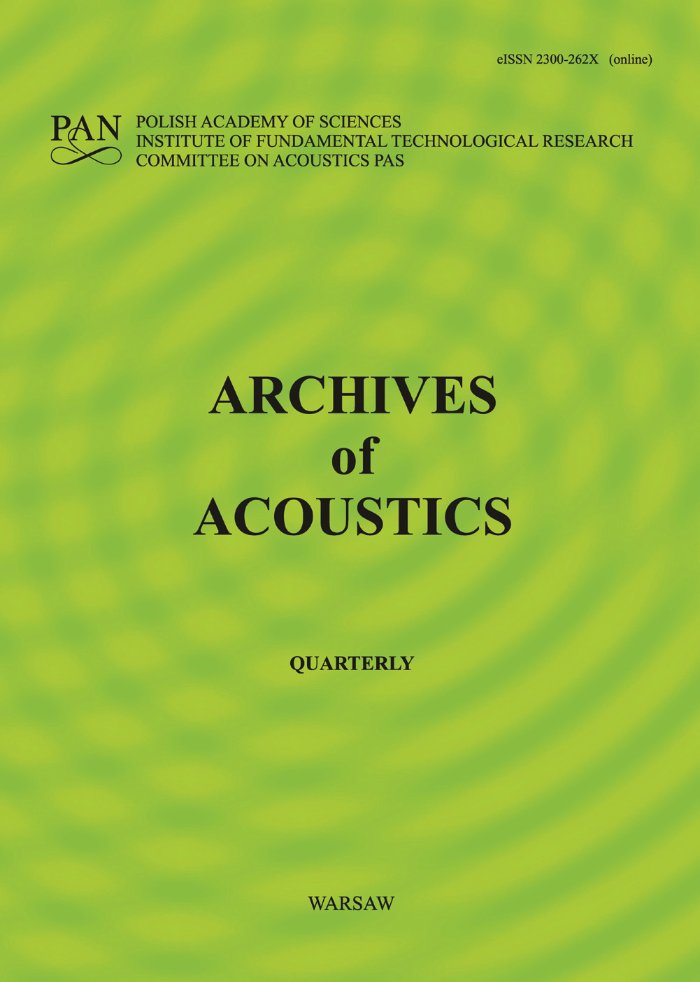Most read articles by the same author(s)
- J. Wójcik, J. Litniewski, L. Filipczyński, T. Kujawska, Nonlinear effects and possible temperature increases in ultrasonic microscopy , Archives of Acoustics: Vol. 27 No. 3 (2002)
- J. LITNIEWSKI, Subsurface imaging of samples with SAM , Archives of Acoustics: Vol. 19 No. 4 (1994)
- A. Nowicki, W. Secomski, J. Litniewski, I. Trots, P. A. Lewin, On the application of signal compression using Golay's codes sequences in ultrasound diagnostic , Archives of Acoustics: Vol. 28 No. 4 (2003)
- I. Trots, A. Nowicki, W. Secomski, J. Litniewski, Golay sequences - side-lobe - canceling codes for ultrasonography , Archives of Acoustics: Vol. 29 No. 1 (2004)


